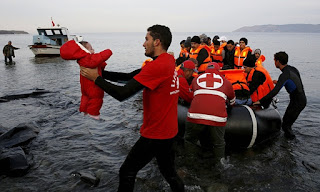Show the children a large wrapped box.
If you were given a present today, I wonder what you would
hope it would be?
Gather responses.
Tell story of God’s gift to Solomon.
Last time I came in, I told you a story about King David,
one of the great kings of Israel.
King David had a son, called Solomon, and when David grew old
and died, Solomon became king in his place.
David had been a very great king. The kingdom was very rich
and powerful with him as a leader. He was going to be a hard act to follow. But
Solomon was determined to do his best.
One night, after Solomon had spent the day praying and
thinking about how he was going to rule over the country, he fell fast asleep,
and as he slept, he had a dream.
In his dream God spoke to him. “Solomon – what gift would
you like me to give you? You can ask for whatever you want.”
Solomon thought very hard. What did he want?
He could ask for gold and silver and jewels, to be rich and
have fine clothes and houses…
He could ask to be very powerful , to always win his battles
when he went to war…
He could ask to be very famous, for everyone to look up to
him and tell him how wonderful he was…
Solomon thought, and thought, and thought…
He thought about his father David. He thought about how God
had looked after him, and how David had trusted in God. He thought of what a
great leader he had been, and all the challenges he had faced – the giant
Goliath, the struggle to be king, the difficult decisions he had had to make.
He thought about how hard it would be to be as good a king as David.
And suddenly he knew what he should ask for.
“Lord, I feel like a little child compared to my father
David. I don’t know what I’m doing. I don’t feel that I could ever be a king as
good as him, so I know what I need. I need wisdom. I need your help to make the
right decisions so I can live wisely. That’s the gift I need from you.”
And in Solomon’s dream God answered him. “Solomon, you
have asked for a good gift. You could have asked for wealth. You could have
asked for power. You could have asked for all your enemies to be defeated, but
you didn’t. You asked for something that might not sound exciting, but which
will make you a good king, and so I will gladly give it to you. And because you
will be wise, and will make good decisions lots of other things will go right
for you too.”
And Solomon woke up, and he remembered his dream, and he
knew that he had chosen the right gift to ask for.
And Solomon became famous for his wisdom. People came to him
when they had really tricky problems to sort out and he thought about them
carefully and prayed to God, and was able to help.
Some of you are going
on to new schools, some are going up a class here, and taking on new challenges
and new responsibilities. What might you need to do that? We don’t always know
what is right to do if we haven’t done something before. It can feel a bit
scary. But we can ask for help, just like Solomon.
……………………
Prayer – think about that box, and what you need as you grow
up.
